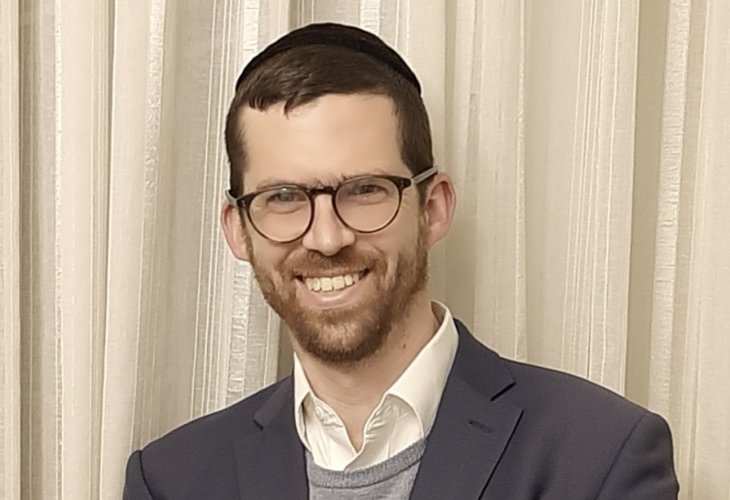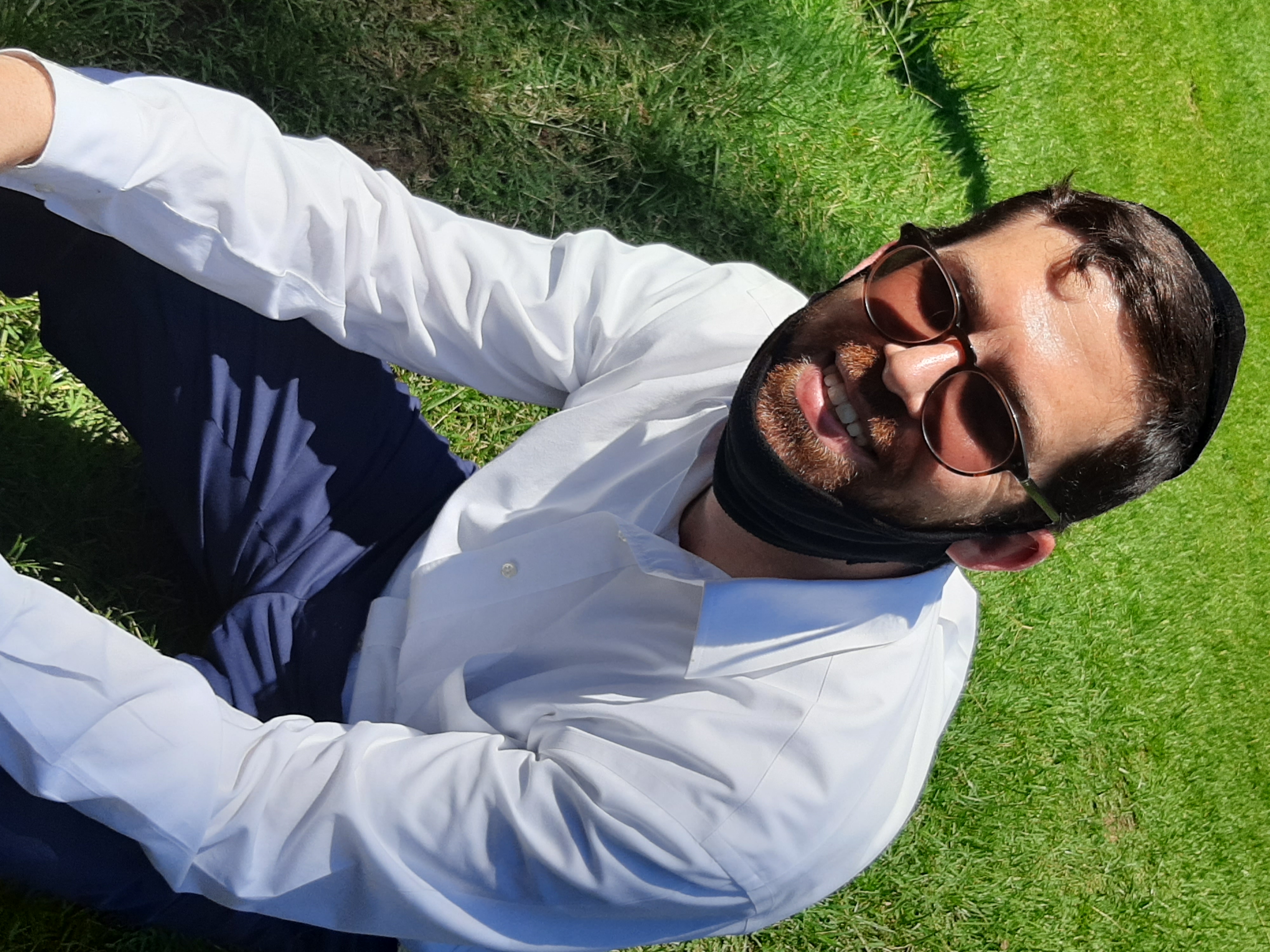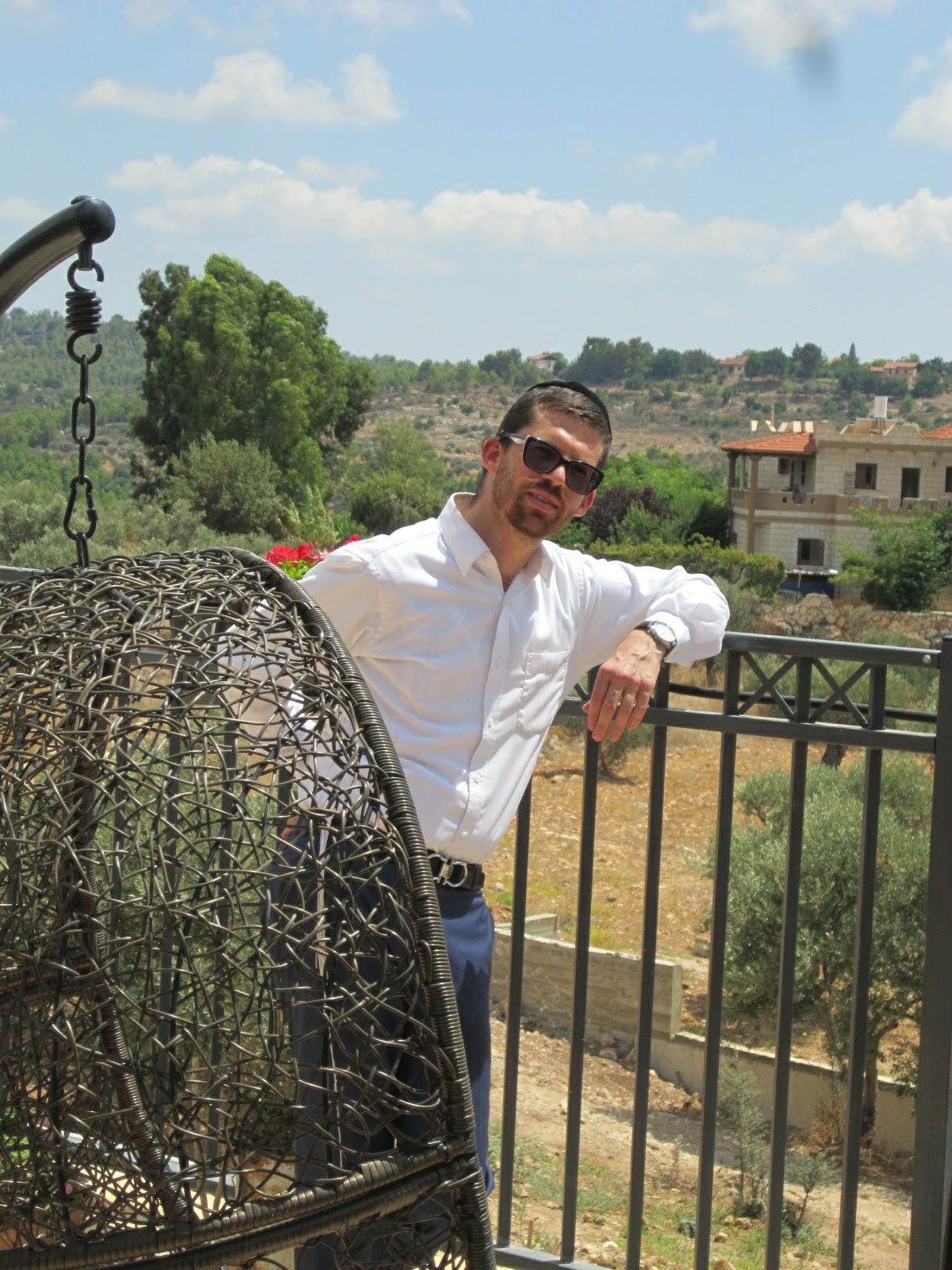Is Your Son Waking Up Almost at Noon? He Might Not Be Pushing Boundaries
Yossi Bilitzer, who specializes in Torah counseling, is seeing up close how much teenagers need help. 'They can mostly catch up after COVID-19, but some situations have caused irreparable damage,' he warns.
 Yossi Bilitzer
Yossi BilitzerWe talk about them, meet them, and are quite involved with them, especially recently as they are simply spending more time at home. Our teenagers, our boys, are currently without a framework, many suffering from significant boredom, and are experiencing a very challenging period in their lives.
Yossi Bilitzer is someone who not only talks about teenagers but also speaks directly to them, face to face. He meets them one-on-one, getting to know them personally, through a unique therapy he offers called 'Torah Counseling.'
'This is a field still unfamiliar to most of the public,' he notes, 'but it is beginning to break into awareness in these days and is particularly popular among yeshiva students. Though conceptually, it suits all populations, even those not observant, as it is an especially effective therapeutic tool.'
The idea of Torah counseling was developed by Rabbi Moshe Shochatovich, author of the book 'Building the Home,' and is based on the principle that for every difficulty or barrier encountered in life, there is an answer in the Torah. If we just define the difficulty correctly and look for the solution that can help, we can influence and heal ourselves.
'I studied the field for five years with Rabbi Shochatovich,' Bilitzer shares, 'and today it is the main tool I offer to those who come to consult with me. It is always moving to see how much it helps, regardless of the exact spiritual state of the person seeking advice. The Torah touches everybody and can help anyone. There is a tremendous amount of knowledge in the Torah, and once you understand the structure of the soul, it can be remarkably beneficial.'

Alone in the Battle
Bilitzer frequently meets with yeshiva students, and it is evident that he is concerned when he speaks about them. 'The main problem evident now among youth is loneliness,' he defines. 'It's an age where boys need company, and it's very hard for them to live alone. Even during COVID-19 they can still meet, and some yeshivas maintain a certain routine, but it's far from the experience of being in yeshiva all day, eating and sleeping together. Many boys miss this.'
Conversely, Bilitzer notes that the boys find themselves at home for long hours. 'They suddenly experience a lot of free time, while in the yeshiva, they usually don't know such feelings as their schedules are full from morning till evening, leaving hardly a moment without activity. Some boys manage to create a new routine due to the situation, but for others, it's complicated because they're used to the schedules set by the yeshiva.
'Recently, I've had the opportunity to speak with numerous educators working in yeshivas,' he adds, 'and I heard their great sorrow about how the entire system they worked to build is collapsing before their eyes. They also spoke to me about the significant and serious gaps between a boy in a junior yeshiva before COVID-19 and a boy of the same age post-COVID-19. Both in terms of academic level and socially. Junior yeshiva years are critical when boys start developing correct thinking, which has many future implications that manifest academically and socially.'
Which area concerns you more – social or academic?
'I think neither area is simple, but they can be overcome with Hashem's help. It's likely that the social connections made in the first year of yeshiva can be caught up in the second year, and the academic material acquired in the second year can be delayed until the third. But what is significant and worrying to me are stories I hear about problems that may have existed before but were not felt or were well hidden, and suddenly they arise and intensify.'
He gives an example: 'A 16-year-old boy is at home, and suddenly the parents discover him engrossed in a movie or busy with video games or engaging with things they wouldn't want him involved in. Even when he leaves the house, he mostly stays in the neighborhood, and they find that he doesn't necessarily connect with friends they would recommend for him. These are not things that didn't happen previously, but COVID-19 exacerbates the issues, and parents are more exposed to them because they see them up close.'
How will we know when our teenager has a real problem and when we can overlook it?
'We must understand that there are situations that aren't ideal, but they are still considered normal and shouldn't alarm us,' Bilitzer divides, 'for instance, if a boy wakes up very late in the morning, even after noon. It's certainly not ideal, and we don't aspire to that. But if afterward, he starts an orderly day with prayers, listening to lessons on the phone, conversations with friends, and logical activities, then his situation seems reasonable. However, if someone wakes up late and does basically nothing afterward, merely dawdles, possibly even sinks into depression or continues lying in bed doing nothing – this could indicate there's more than just late waking but a much more essential issue. This is what can truly be dangerous for him, and it is the thing that should worry us. By the way, it's worth mentioning that parents don't always know the life in the yeshiva world. Therefore, they sometimes might see some ostensibly unproblematic situations as disastrous, and vice versa – think that certain situations are tolerable when they are actually not. So with every red flag lighting up, it's always worth consulting and asking.'

And what do you think is the reason some boys are harmed by COVID-19 and some can function almost normally?
'It's a difficult question. I think one of the things that cause a boy to develop his character is when he grows up in a home full of faith and joy of life. Such a home gives him spirits and helps him cope even with less simple situations. The atmosphere at home is the first thing that influences the boy's choices.
'Furthermore, there are homes where children are hardly given opportunities to choose, and the path is clear and predetermined. The child knows in advance which Talmud Torah or institution he will go to, with whom he will connect, and where he will continue studying in both junior and senior yeshiva. In such homes, there is no room for discretion or debates. There are extreme cases where they're not even allowed to decide what they will eat for breakfast. Boys who grew up like this find themselves quite vulnerable during COVID-19, struggling to deal with the free time that has been created and the ability to choose and decide because it's something they've never been accustomed to.
'There's also the subject of study in capsules which has significantly affected the boys. Initially, some were very happy because they saw it as an opportunity to return to a framework after such a long period at home. However, after the first days passed, problems emerged, and many boys found it very challenging that they couldn't leave their rooms. Here too, coping varies, of course, from boy to boy. I knew someone who was planning to transfer to another yeshiva before COVID-19 because he wasn't fitting in, but this capsule program worked in his favor. He made friends with one of the roommates who helped him find his place in the yeshiva he's studying, and he stayed. On the other hand, there are quite a few for whom the situation worsened, so there are no set rules on the subject.'
Searching for Solutions
The situation is already present. What can be done now? Are there solutions?
'There are no magic solutions,' Bilitzer prefaces, 'but I want to emphasize again the importance of joy. It's written in the Gemara: "Without a wife, there is no joy," and the question is raised about boys who have not yet married? How can they maintain joy? The answer is that in those days before marriage, there is a direct link between the parents' joy and the children's joy, and it's crucial to know.
'Another thing we see in our sources is education for responsibility. I once visited Rabbi Reuven Leichter, the lecturer, and just then, his son was playing with raw eggs – throwing one and catching two. Rabbi Leichter turned to the child and said: "Keep playing as much as you want, but remember it's your responsibility." True responsibility is letting the child be responsible for his actions, letting him understand that even if he's bored, it's his business and not ours. He alone is supposed to manage his life and his time. If we instill this in our children while they are young, it will greatly help them later. On the other hand, we must recognize the age and be aware that just because a teenager tests boundaries doesn’t mean he wants to abandon the path or rebel against us. Sometimes, he's just testing and experimenting. In any case, we're not in control of our children's lives. Ultimately, the choice is in their hands, and we cannot choose or decide for them. The only thing we can do is guide them and pray for them.'
Bilitzer emphasizes that 'There are extreme situations where a deep intervention is really needed, but these are not the majority of the cases but rather the minority. The idea is that if a person is ill, they should be sent to a doctor, but if they are healthy and suffering from a problem, they don't need a doctor but just someone who can help and give them sound advice. The line between these things is very fine, so it is important that as parents, we are aware and sensitive to the situation of our teenagers.'

